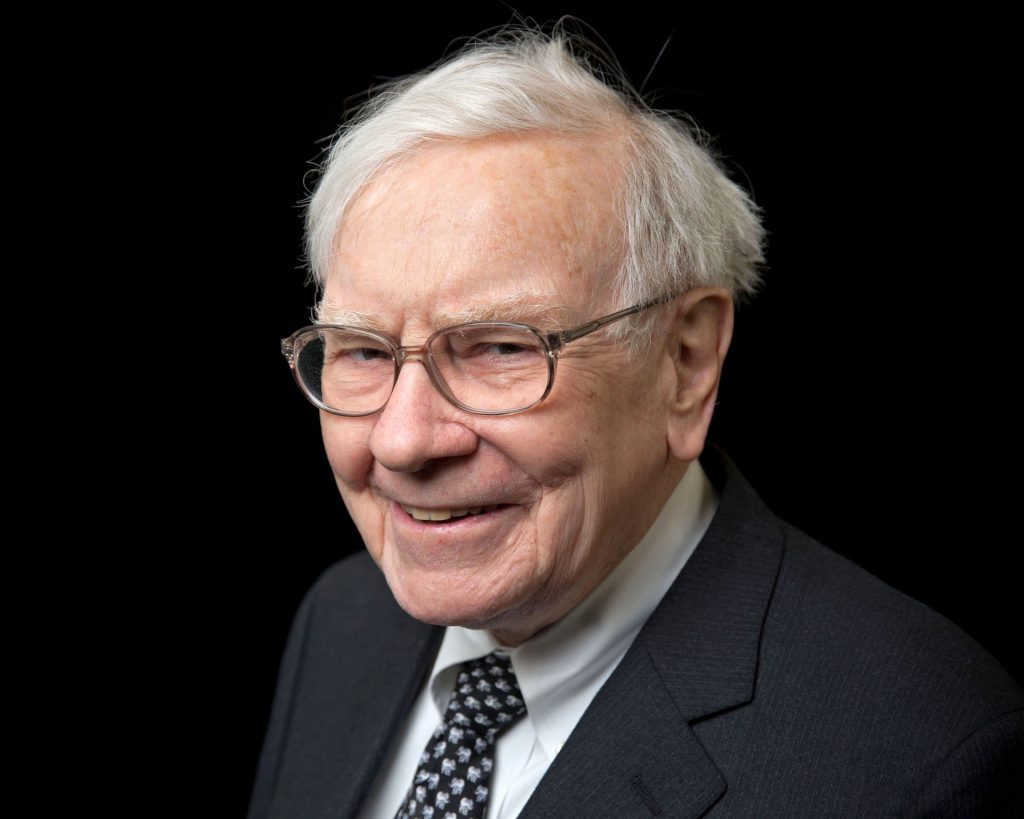Warren Buffett, often referred to as the “Oracle of Omaha,” is one of the most successful investors of all time and a prominent American business magnate. As the chairman and CEO of Berkshire Hathaway, Buffett has built a multibillion-dollar empire based on his value investing philosophy, patience, and exceptional business acumen. With a net worth regularly ranking him among the wealthiest individuals in the world, Buffett is known for his humility, frugality, and philanthropy. His investment strategies, long-term outlook, and ability to identify profitable companies have made him a legendary figure in both the finance world and popular culture.
Early Life and Education
Warren Edward Buffett was born on August 30, 1930, in Omaha, Nebraska, to Leila and Howard Buffett. His father was a stockbroker and later a U.S. Congressman. Buffett showed a keen interest in business and investing from a very young age. By the time he was 11, Buffett made his first investment, purchasing three shares of Cities Service for himself and his sister. Though he experienced early losses, his determination and curiosity about how the stock market worked were set.
Buffett’s childhood was filled with entrepreneurial ventures. He sold chewing gum, Coca-Cola, and weekly magazines door-to-door. He also worked in his grandfather’s grocery store and had a paper route. At age 14, he invested in a 40-acre farm in Nebraska, using savings from his paper route, a sign of his early inclination towards profitable, tangible assets.
In 1947, Buffett enrolled at the University of Pennsylvania to study business, but he transferred after two years to the University of Nebraska, where he graduated with a Bachelor of Science in Business Administration. For his graduate studies, Buffett applied to Harvard Business School but was rejected. Instead, he attended Columbia Business School, where he was influenced by two legendary investors: Benjamin Graham and David Dodd. Graham’s book, The Intelligent Investor, became the foundation for Buffett’s value investing philosophy.
Early Career: Learning from Benjamin Graham
After earning his Master of Science in Economics from Columbia in 1951, Buffett returned to Omaha, where he worked as a stockbroker. However, he wanted to work with his mentor, Benjamin Graham. After several letters and proposals, Buffett eventually joined Graham’s firm, Graham-Newman Corp., in 1954.
Working under Graham was a turning point in Buffett’s career. He absorbed Graham’s investment principles, particularly the concept of “intrinsic value” — the idea that stocks should be bought when their market price is lower than their actual worth. This approach would later define Buffett’s investment strategy throughout his career.
In 1956, when Graham retired and closed his firm, Buffett returned to Omaha to start his own investment firm, Buffett Partnership Ltd. With a focus on long-term investments and undervalued companies, Buffett achieved tremendous success. By the early 1960s, Buffett had made a fortune, and he was well on his way to becoming a renowned investor.
Berkshire Hathaway and Building an Empire
In 1962, Buffett began purchasing shares in a struggling textile manufacturing company called Berkshire Hathaway. Initially, it was a value play, with Buffett seeing potential in the company’s assets. However, as the textile industry declined, he pivoted Berkshire Hathaway’s focus from textiles to investments. Over the years, Buffett transformed the company into a multinational conglomerate holding company.
One of Buffett’s key strategies was to acquire well-managed companies with strong brand names, solid earnings, and the potential for long-term growth. Instead of micromanaging the companies he bought, Buffett allowed their management to run the businesses, while Berkshire Hathaway provided the capital and financial oversight. This hands-off approach proved incredibly effective, allowing Berkshire to own a diverse range of companies across various sectors.
Some of the most notable companies and brands owned by Berkshire Hathaway include:
- GEICO: A major auto insurance company.
- BNSF Railway: One of the largest freight railroads in North America.
- Dairy Queen: A popular fast-food chain known for ice cream.
- Duracell: The global leader in batteries.
- Fruit of the Loom: A major clothing manufacturer.
- Nebraska Furniture Mart: The largest home furnishing store in North America.
In addition to owning entire companies, Buffett has been known for making significant investments in publicly traded companies. His portfolio includes large stakes in companies such as Coca-Cola, Apple, American Express, Bank of America, and The Coca-Cola Company.
Investment Philosophy: Value Investing
Warren Buffett’s investment philosophy is grounded in value investing, a strategy he learned from Benjamin Graham. Buffett’s approach revolves around buying stocks at prices below their intrinsic value, holding them for the long term, and focusing on companies with strong fundamentals.
Key principles of Buffett’s investment philosophy include:
- Buy and Hold: Buffett is a firm believer in holding onto investments for the long term. He famously said, “Our favorite holding period is forever.”
- Invest in Businesses, Not Stocks: Buffett looks at stocks as parts of a business. He evaluates the quality of the company, its management, and its long-term growth potential rather than short-term market movements.
- Margin of Safety: Inspired by Graham, Buffett always seeks a margin of safety in his investments, meaning he buys stocks at prices significantly lower than their intrinsic value.
- Patience and Discipline: Buffett’s success is largely attributed to his patience and discipline. He avoids risky or speculative investments, opting instead for stable companies that have strong brands and consistent earnings.
Personal Life and Frugality
Despite his immense wealth, Buffett is known for his modest and frugal lifestyle. He has lived in the same Omaha house that he purchased in 1958 for $31,500, and he famously enjoys simple pleasures like McDonald’s breakfast and Coca-Cola. Buffett has often spoken about how money does not equate to happiness, and he has no interest in lavish spending.
Buffett’s humility and down-to-earth nature have endeared him to many people. His annual letters to Berkshire Hathaway shareholders are widely read and are known for their candid and insightful observations on business and investing.
Philanthropy and The Giving Pledge
Warren Buffett is also one of the most generous philanthropists in the world. In 2006, he made headlines when he announced that he would donate the majority of his wealth to charitable causes, primarily through the Bill & Melinda Gates Foundation. His commitment to giving away his fortune was further solidified in 2010 when he, along with Bill Gates, launched The Giving Pledge, an initiative that encourages billionaires to give away at least half of their wealth to charitable causes during their lifetime or after their death.
To date, Buffett has donated billions of dollars to causes ranging from education to global health, poverty alleviation, and nuclear nonproliferation. He has consistently stated that he sees no value in accumulating wealth beyond what is necessary and believes in using his resources to benefit humanity.
Legacy and Influence
Warren Buffett’s legacy extends far beyond his vast fortune. He is celebrated as one of the greatest investors of all time, and his investment principles are studied by business students and professionals worldwide. His influence on the world of finance is unparalleled, and his name is synonymous with wise, long-term investing.
In addition to his financial success, Buffett’s commitment to philanthropy has set a powerful example for others in the business world. His efforts to encourage fellow billionaires to give back through The Giving Pledge are likely to have a lasting impact on global charitable efforts for decades to come.
Buffett’s unique combination of financial brilliance, ethical conduct, humility, and generosity makes him one of the most admired figures in both the business world and popular culture. As he often says, “It takes 20 years to build a reputation and five minutes to ruin it.” Throughout his life, Buffett has demonstrated that building a great reputation — in both business and life — requires time, patience, and a commitment to doing the right thing.
Conclusion
Warren Buffett is more than just a billionaire investor; he is a symbol of wisdom, patience, and long-term success in the world of finance. From his early days of entrepreneurial ventures to his leadership of Berkshire Hathaway and his philanthropic endeavors, Buffett’s life is a testament to the power of thoughtful investing, hard work, and giving back. His influence continues to shape the worlds of business, finance, and philanthropy, and his legacy will endure as one of the greatest in modern history.



